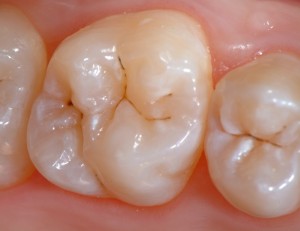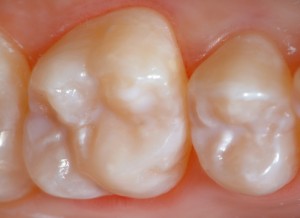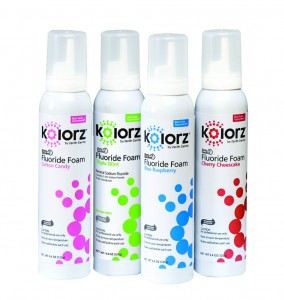Preventative Sealants and Fluoride Treatments
Preventative Sealants
Sometimes brushing is not enough. Everyone has hard-to-reach spots in their mouth and brushing doesn’t always fully clean those difficult places. When that happens, you are at risk of tooth decay.
A sealant is a thin resin coating that is applied to the chewing surface of teeth to prevent food from getting trapped within deep dental grooves. More than 75% of dental decay begins within these grooves and sealants protect the tooth by sealing deep grooves – creating a smooth, easy to clean surface which can protect teeth from decay for many years.


Sealants are usually applied during childhood, when people most likely to get tooth decay. It is more common to seal “permanent” teeth rather than “baby” teeth, but your dentist will let you know what is best for your child.
Fluoride Treatments
Fluoride is an easy and effective way to help prevent tooth decay. This natural mineral has been recognized for over 50 years as a way to strengthen dental enamel and reduce cavities.
In the dental office, supplemental fluoride can be given in two ways:
 Topical fluoride strengthens teeth by being absorbed into dental enamel – making the tooth more resistant to decay. Dental products such as toothpastes, mouth rinses, and gels provide a regular supply of fluoride; however dentists and dental hygienists recommend application of fluoride twice a year during dental check ups.
Topical fluoride strengthens teeth by being absorbed into dental enamel – making the tooth more resistant to decay. Dental products such as toothpastes, mouth rinses, and gels provide a regular supply of fluoride; however dentists and dental hygienists recommend application of fluoride twice a year during dental check ups.- Systemic fluoride strengthens the teeth that have erupted as well as those that are developing under the gums. We gain systemic fluoride from most foods and our community water supplies. Generally, fluoride drops are recommended for infants, and tablets are best suited for children up through the teen years. It is very important to monitor the amounts of fluoride a child ingests – if too much fluoride is consumed, a condition called fluorosis (white spots on the teeth) may result.
